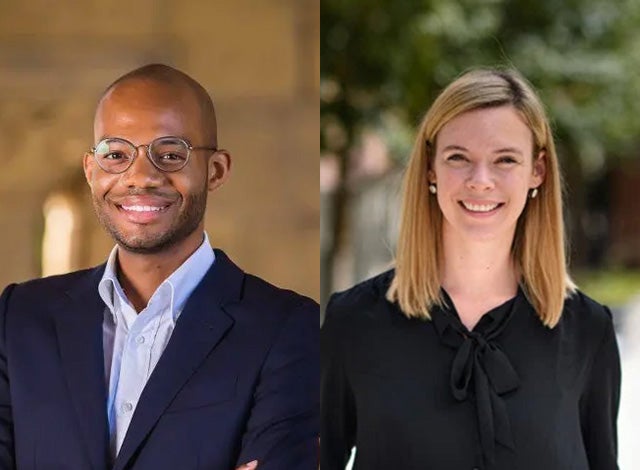Criminal Courts and the Abolition Movement
October 11, 2023
4:30 pm - 5:45 pm
This event has passed
Zoom

Popular discussions of abolition focus on policing and imprisonment, but an abolitionist future would require wholesale changes in societal structures and systems. As scholar Matthew Clair and attorney-researcher Amanda Woog have highlighted, “between the police and the prison cell sits the criminal court … the legal pathway from an arrest to a prison sentence[.]” The noble notion of the U.S. criminal court system is an adversarial system where accused people are guaranteed competent representation, presumed innocent, and transgressions are addressed and resolved peaceably. But for many years, scholars and organizers have highlighted the daily indignities and violence of the criminal court setting—including enormous misdemeanor caseloads, pipelines to pretrial detention, burdensome fines and fees, hostile racial climates, dehumanizing treatment of accused people, and disparate charging and sentencing that compound racial inequality and entrench generational harm. What is the role of criminal courts, and each actor within them, in maintaining or compounding the harms of policing and imprisonment, and how could courts be changed in order to reduce or eliminate those harms? Joining us are Matthew Clair and Amanda Woog, co-authors of the February 2022 article “Courts and the Abolition Movement” in the California Law Review. They’ll discuss the injustices perpetrated by and within criminal courts, including how courts foster inequality and racialized criminalization through legal doctrine, social control, and economic exploitation—as well as possible ways to foster institutions that do not rely on coercion and exploitation to redress harm or issues arising out of poverty, substance use, mental illness, or inequality.
Speakers:
Matthew Clair is Assistant Professor of Sociology and (by courtesy) Law at Stanford University. His scholarship broadly examines how cultural meanings within organizations and institutions reflect, reproduce, and challenge various dimensions of social inequality, state violence, and injustice. His research to date has focused on inequality and violence in the criminal legal system, legal institutions, and the legal profession. He is the author of the award-winning book Privilege and Punishment: How Race and Class Matter in Criminal Court (Princeton University Press). Matthew’s research has been published in several academic and popular outlets, including Criminology, Social Forces, California Law Review, Law and Society Review, Du Bois Review, The Nation, Boston Review, and Public Books. His work has received awards from the American Sociological Association, the American Society of Criminology, the Law & Society Association, and the Society for the Study of Social Problems and has been supported by several grants and fellowships, including the National Science Foundation Graduate Research Fellowship and the RDCJN/Arnold Foundation small grants program. In 2022, Matthew received the American Society of Criminology’s Ruth Shonle Cavan Young Scholar Award and the Walter J. Gores Award for Excellence in Teaching, Stanford University’s highest teaching award. He received his A.B., A.M., and Ph.D. from Harvard University.
Amanda Woog is the former Executive Director of the Texas Fair Defense Project in Austin, where she led campaigns to end the criminalization of poverty in Texas with a focus on issues like cash bail and criminalized drivers. Prior to that, she worked as a researcher with the Quattrone Center for the Fair Administration of Justice at the University of Pennsylvania Law School and the Institute for Urban Policy Research and Analysis at the University of Texas at Austin, researching issues around crime labs, custodial deaths, and police shootings. She was also the Policy Director of the Texas House Committee on Criminal Jurisprudence during the 84th legislative session, where she tracked and analyzed criminal justice legislation. Amanda has also worked as an associate attorney at Sullivan & Cromwell LLP, where she was on a team representing pro bono a death-row inmate in Alabama, and as a briefing attorney to the Honorable Cheryl Johnson of the Texas Court of Criminal Appeals. Amanda received her law degree with honors from The University of Texas School of Law and her B.A. with departmental honors in Philosophy from Trinity College in Hartford, Connecticut.